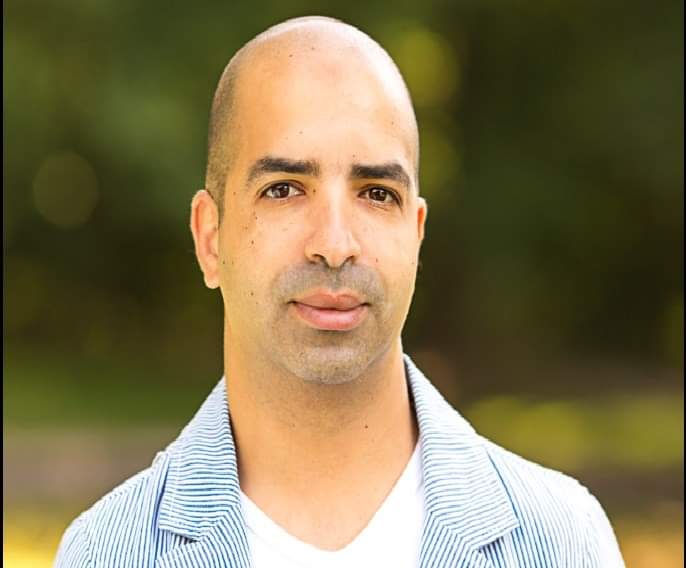منصات التواصل الاجتماعي -التي يتابعها ملايين المستخدمين- أصبحت من أهم اللاعبين المهيمنين على سوق الأخبار.
وبيان ذلك أنها صارت تمتلك سلطة كبيرة في توزيع المعلومات على مستخدميها، وعلى المؤسسات والأفراد الذين ينتجونها.
تَستخدم منصات وسائل التواصل الاجتماعي الخوارزميات لأداء وظائف كانت -تقليديا- حكرا على محرري الأخبار. بمعنى آخر، أصبحت هذه الخوارزميات هي من يحدد أهمية المواد الإخبارية وكيفية نشرها.
لقد طُورت الخوارزميات لكي تتخذ القرارات تلقائيا بشأن المحتوى لأنها -ببساطة- "تتبع الأوامر" من الذي برمجها ونشرها على منصات وسائل التواصل الاجتماعي.
ما هي الخوارزمية؟
يمكن تعريف الخوارزمية بأنها سلسلة من الخطوات لإنجاز مهمة ما. تعالج الخوارزميات كميات هائلة من البيانات لدفع الخدمات في مجالات مثل التنقل والتجارة ووسائل التواصل الاجتماعي والتمويل والسفر، وحتى المواعدة عبر الإنترنت. تصل إلى هاتفك للتحقق من شبكة التواصل الاجتماعي المفضلة لديك. وتظهر موجز الأخبار، وتعرض جميع المشاركات الشيقة التي فاتتك أثناء غيابك.
يتم تنظيم هذه الخلاصة بواسطة خوارزمية تحدد المنشورات الأكثر أهمية بالنسبة لك؛ بناء على نشاطك السابق الذي يضم الإعجابات والأصدقاء والمتابعين والتعليقات.
ومع ظهور "إنترنت الأشياء"، ومع تزايد اعتماد الشبكات على الخوارزميات المعقدة لأداء عدة وظائف بالبرمجيات، فإن تأثير الخوارزميات على مستقبل المؤسسات الإعلامية كبير وعميق.
من خلال هذه الخصائص، تتحكم منصات التواصل الاجتماعي في تدفق المعلومات؛ إذ تصبح مؤثرة في تكوين الرأي حول الموضوعات ذات الأهمية الجماهيرية.
كانت الانتخابات الرئاسية الأمريكية واستفتاء خروج بريطانيا من الاتحاد الأوروبي عام 2016 أمثلة شاهدة حول تأثير هذه المنصات في القرارات السياسية. إنها لم تساهم في التأثير على النقاش السياسي فحسب، بل -أيضا- تسامحت مع جميع أنواع التعبير، سواء كانت مفيدة للجمهور أم لا. والأدهى من ذلك، أن هذه الوسائل ساعدت على نشر خطاب الكراهية والأخبار الزائفة.
زملاء المهنة الجدد
هناك من يعتبر أن شبكات التواصل الاجتماعي ومحركات البحث يتصرفون كناشرين للأخبار. هنا يجب إثارة أسئلة حول ماهية واجباتهم الأخلاقية والقانونية: ما هي الأهداف التي تحفز القرارات التي تتخذها هذه المنصات بشأن المحتوى المنشور على منصاتها بشكل عام، وخاصة القرارات المتعلقة بالمحتوى الإخباري؟ ماذا لو كان دافع "جني الأرباح" هو العامل الأكثر أهمية عند اتخاذ القرارات بشأن بث الأخبار؟
منصات التواصل الاجتماعي تختار -ببساطة- المحتوى الإخباري الذي تريد عرضه؛ بناء على الرغبة في إبقاء الأشخاص على منصاتها؛ حتى يتمكنوا من المشاركة في المراقبة المستمرة للمستخدم؛ لاستخراج البيانات التي تسمح لهم بتغذية الإعلانات الموجهة إليه.
يدفع ذلك شركات التواصل الاجتماعي إلى منح الامتياز للمحتوى الذي يُنظر إليه على أنه جذاب أو ترفيهي وليس ذا قيمة إخبارية أو صادقة.
في المقابل، فإن هذه الرغبة في الحصول على حصة من الجمهور وإيرادات الإعلانات تدفع المؤسسات الإخبارية التقليدية والرقمية لإنتاج محتوى يستجيب لـ "سياسات" منصات التواصل الاجتماعي.
هذه الثنائية تقودنا لفرضيتين: الأولى هي أن منصات وسائل التواصل الاجتماعي تتحكم بشكل شبه كامل في توزيع الأخبار عبر الإنترنت من خلال التحكم في صناعة الأخبار وجعل الفاعلين الآخرين مثل قاعات الأخبار ووكالات الأنباء والمحطات الإعلامية مجرد موزع. يحدث الأمر دون الاعتراف بالعواقب السلبية والتأثيرات التي تحدثها على بث المعلومات عبر الإنترنت.
الفرضية الثانية هي أن شركات وسائل التواصل الاجتماعي تؤدي -أيضًا- وظيفة تحريرية باستخدام الخوارزميات المنتشرة على منصاتها، وبالتالي يجب عليها قبول دورها كناشر للأخبار والالتزام بالأخلاقيات التي يتحصن بها الصحفيون عند أداء وظيفتهم التحريرية.
تقييم الوضع الحالي لسوق الأخبار عبر الإنترنت يؤكد أن منصات وسائل التواصل الاجتماعي تؤدي -بالفعل- دور الناشر، مما يُلزمها بتحديد الواجبات والمسؤوليات. هذه الواجبات والمسؤوليات تفرض عليها الالتزام بحرية التعبير والصحافة واحترام حقوق البحث عن المعلومات وتلقيها ونقلها.
حراس البوابة الحقيقيون
ما زلنا نعتمد على حراس البوابة اليوم، ما يعني أنه على عكس التوقعات المتفائلة في الماضي التي كانت تستشرف ديمقراطية صناعة الأخبار عن طريق الجمهور كصانع محتوى، تم استبدال مجموعة من صناع القرار في المؤسسات الصحفية بمجموعة أصغر وأكثر قوة من الناحية الاقتصادية. إنهم الحراس الجدد الذين يتمتعون بقوة غير محدودة.
في الماضي كان محررو الأخبار يختارون القصص الإخبارية وفق معاييرهم وقيمهم، كما أنهم يتخذون قرارات بشأن نشر أو استبعاد المواد، بينما في منصات وسائل التواصل الاجتماعي مثل فيسبوك، تنفذ -الآن- هذه الوظائف التحريرية بواسطة الخوارزميات؛ باستبدال معايير محرري الأخبار بمعايير الذين قاموا بإنشاء وتنفيذ الخوارزميات؛ استنادا على "المعايير الحسابية".
وقد أدت هذه السياسة إلى خلق "تبعية" مؤسسات الصحافة لوسائل التواصل الاجتماعي.
من أجل ضمان البقاء اضطرت وسائل الإعلام إلى اعتماد طريقتين رئيسيتين: أولا تحتاج المؤسسات الإعلامية هذه المنصات للوصول إلى جمهورها؛ إذ يقضي جزء كبير منهم معظم وقته على الإنترنت؛ وثانيا لأن المنصات الاجتماعية تتحكم في معظم سوق الإعلانات اليوم، ولا بد منها للبقاء على قيد الحياة ماليا؛ نظرا لاعتمادها بشكل كبير على برامج مشاركة عائدات الإعلانات.
ثنائية الخوارزمية والمحتوى
هل انتهت مقولة "المحتوى هو الملك" لتبدأ حقبة " الخوارزمية هي الملكة"؟ وهل يمكن الجمع بين المقولتين في غرف الأخبار؟
بدأت "برمجة" الأخبار بالفعل في الظهور في الحياة اليومية لغرف الأخبار، وسنوضح بعض الأمثلة كيف يمكن لـ "البرمجة" أن تساعد الصحافة بالإضافة إلى الآثار المترتبة عنها، وخاصة "الأسئلة الأخلاقية".
تواجه وسائل الإعلام ضغوطا تجارية متزايدة باستمرار، ما يحتم عليها البحث عن هوامش أعلى من الموارد المتضائلة، وهو المحرك الرئيسي لـ "برمجة" الأخبار. في الوقت الحالي، يتمثل أحد الأهداف الرئيسية للمحتوى الآلي في توفير الجهد الصحفي، لاسيما في المهام المتكررة، مع زيادة حجم الإنتاج.
الإنتاج الآلي هو -في المقام الأول- أداة تساعد في إنشاء المحتوى المضاف. إذ ظهرت تجربة كتابة النصوص والخوارزميات بشكل جيد؛ بدون تحرير بشري.
قامت وكالة أسوشيتد برس الأميريكية Associated Press في نيويورك، جنبا إلى جنب مع شركة البرمجيات Automated Insights بإنشاء نظام يقوم تلقائيا بإنشاء تقارير الأرباح لعملاء الوكالة.
إنه نظام يخفف العبء على المراسلين الماليين. وقد ارتفع الإنتاج من حوالي 300 قصة كل موسم إلى 4400 في آخر إحصاء.
يمكن لغرف الأخبار التعامل مع الكم الهائل من النصوص التي يتم إنتاجها عند التشغيل الآلي. وتعد القدرة على إنتاج كميات كبيرة جدا من النصوص -في وقت قصير- إحدى نقاط القوة العظيمة لـ "البرمجة".
ويمكن أن يفضي ذلك إلى إنشاء فئات محتوى جديدة تجذب مجموعة معينة من المعلنين والمحتوى الذي يحول الزائرين إلى قراء يدفعون.
أثناء تغطية أولمبياد ريو 2016، طورت "واشنطن بوست" هيليوغراف؛ وهي تقنية آلية لرواية القصص. إنه نظام يقوم تلقائيا بإنشاء تحديثات قصيرة متعددة الجمل للقراء.
ظهرت هذه التحديثات في مدونة The Post، لتوسّع -فيما بعد- خدماتها لتشمل التعامل مع البيانات الضخمة، مثل نتائج الانتخابات أو الجريمة أو العقارات أو إعلانات الأرباح.
كانت الحصيلة متواضعة في عامها الأول، حيث أنتجت The Post حوالي 850 مقالة باستخدام Heliograph.
يجب التأكيد أن استخدام هذه التقنية لا يعني الاستغناء عن الصحفيين؛ فالذكاء الصناعي والبرمجة -رغم تقدمها- ما زالت عاجزة عن كتابة مقال رأي أو تحليل عميق.
إلى أي مدى يمكن أن تحترم هذه الخوارزميات القيم الأخلاقية المعتمدة في غرف التحرير؟ وهل نشهد اليوم انتقالا من "الموضوعية التحريرية" إلى "الموضوعية الميكانيكية" كما سماها Matt Carlson عام 2019؟
إنها أنظمة قادرة على تقديم تمثيلات ومخرجات "تتغلب على حدود "الذاتية البشرية" وتجعلها تابعة لها.








































